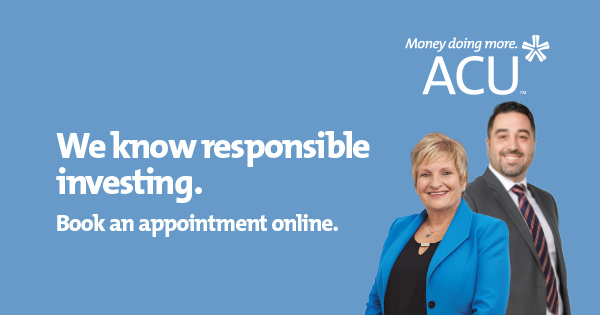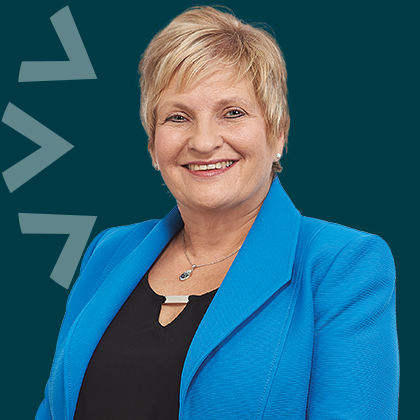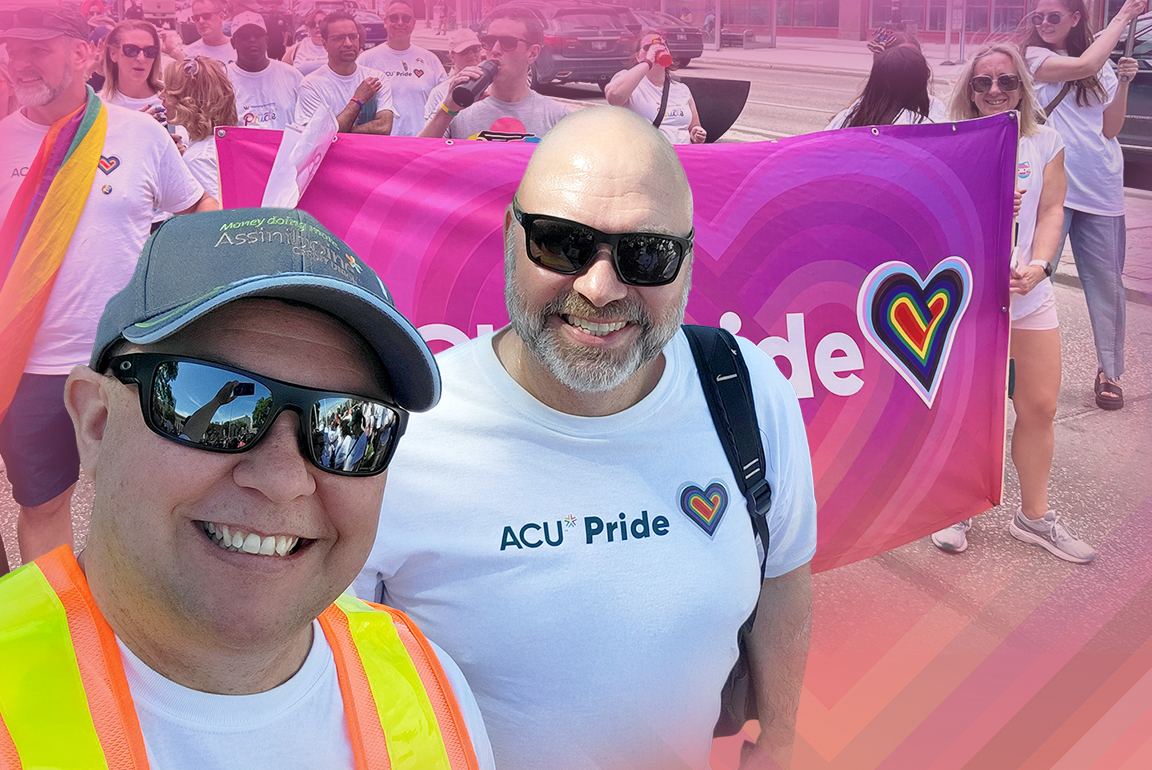What is Responsible Investing and how can I get started?
Every day we make choices about our purchases and consumption. It’s clearer than ever that our personal decisions and our impact on the world around us are linked.
We read stories about the Great Pacific Garbage Patch, we decide to use reusable shopping bags and we avoid buying products with excessive packaging. We think about the growing risks of climate change and choose to drive less or take public transit. We see images of the horrors of a garment factory collapse in Bangladesh and we take a closer look at how our clothes are being made and which manufacturers are committed to improving health and safety standards.

Similarly, we can ask how our investments are linked with the world around us. After all, the companies we choose to invest in are making decisions that will impact our communities and planet, too. Their approach to growing and managing their business will not only affect our communities and the Earth around us, but also our financial success.
What is Responsible Investment?

Responsible investment (or RI) refers to the incorporation of environmental, social and governance factors (ESG) into the selection and management of investments.
Some examples of ESG include:
- Environmental issues: Those that arise from, or impact on, ecosystems and ecosystem services. For example: climate change, pollution and waste management.
- Social issues: Relating to the rights, well-being and interests of people and communities. For example: Occupational health and safety, human rights and gender equality.
- Governance issues: Those that arise from, or impact on, the management and governance of a company. For example: Women in leadership, executive pay and cybersecurity.
ESG issues don’t just affect the environment, society at large or how a company is run. They are important economic issues with significant financial implications for businesses and investors.
Further, ESG issues aren’t necessarily apparent on a company’s financial statements, but they still present risks and opportunities that affect the company’s long-term success. Studies have shown that firms with good ESG practices may experience both financial outperformance and lower risk. So it makes sense to pay attention to a company’s ESG performance in addition to financial performance because both can have a measurable effect on your investment returns.
What type of RI strategy should I take?

Although ESG and RI have been around for some time, many investors may not have heard about it or they may view it as a niche investment strategy not worth too much attention. On the contrary, incorporating ESG analysis into the investment process is widely accepted, and RI has been growing rapidly in Canada and around the world.
There are several different strategies that portfolio managers use to incorporate ESG issues in their investment processes:
| RI Strategy | Description |
| ESG Integration | The portfolio manager integrates ESG data with traditional financial metrics when assessing a company’s value. This is the most prominent RI strategy in Canada. |
| Shareholder Engagement | The portfolio manager may vote proxies, file shareholder resolutions, and dialogue with companies to improve their ESG performance. |
| Negative Screening | Negative screening strategies exclude specific companies, industries or sectors based on ethical considerations or negative ESG characteristics. |
| Positive Screening | Positive screening or “best in class” strategies include companies, industries or sectors based on positive ESG performance relative to peers. |
| Norms-Based Screening | Investments comply with certain international norms and standards such as the UN Guiding Principles for Business and Human Rights or the OECD Guidelines for Multinational Enterprises. |
| Thematic ESG Investing | Investments target specific ESG themes such as environmental sustainability, low carbon, clean tech and women in leadership. |
| Impact Investing | Investments made with the intention to solve social or environmental problems and generate a financial return. |
Excellent market growth
The latest Canadian RI Trends Report shows that assets in Canada being managed using one or more RI strategies increased from $1.5 trillion at the end of 2015 to $2.1 trillion as of December 31, 2017. RI assets now account for more than 50.6% of total Canadian assets under management, up from 37.8% two years earlier.
Globally, responsible investment assets reached US$22.9 trillion at the start of 2016. That is a 25% increase from 2014, according to the latest Global Sustainable Investment Review.
If it sounds like investing responsibly is the right choice for you, how do you start?
How to get started in Responsible Investing
First, it’s worth taking some time to understand the basics. The good news is you don’t need to be an expert on ESG issues or Responsible Investment strategies.
Look for an investment advisor or specialist who has the Responsible Investment Specialist (RIS) designation. The RIS program is run by the Responsible Investment Association (RIA) to equip Canadian investment professionals with the knowledge they need to discuss ESG issues with clients, and the tools to offer advice about RI products.
Next, ask questions about RI such as ‘How do environmental, social or governance issues impact my portfolio,’ and ‘What investment opportunities are available to me as a responsible investor?’
Then, remember that you are the expert on your own needs, values and preferences. Share these with your investment advisor. Having a discussion about RI will help your advisor understand what you are looking for and recommend a suitable investment strategy for you.
Small steps forward can change the world
In 2019, my family has decided to stop using plastic drinking straws, which seems like a small thing. However, our hope is that many other people also take this small action. If that were to happen, we will collectively contribute to a significant change in our world.

Just as you would make small changes in your personal life, it’s okay to start small with RI. You can choose an RI product for all or just a portion of your investments. You could decide you want to invest with a particular ESG strategy in mind, like excluding tobacco companies from your portfolio, or look for a more general RI solution like a mutual fund that invests in companies with good environmental, social and corporate governance practices.
We make choices and decisions about the way we live our lives, and those decisions affect the world around us. Now, anyone can do that with their investments as well.
Make an appointment with an Aviso Wealth advisor at ACU Wealth Management today. Email or call us at 204.958.8588 (toll-free 1.877.958.8588).
Looking for more information to kickstart your journey? Learn more about Responsible Investing at riacanada.ca.

Mutual funds and other securities are offered through Aviso Wealth, a division of Aviso Financial Inc.
Mutual funds and other securities are offered through Aviso Wealth, a division of Aviso Financial Inc. Commissions, trailing commissions, management fees and expenses all may be associated with mutual fund investments. Please read the prospectus before investing. Unless otherwise stated, mutual fund securities and cash balances are not insured nor guaranteed, their values change frequently and past performance may not be repeated.
Responsible investment (RI) is defined as the integration of environmental, social and governance (ESG) factors into the selection and management of investments. Shareholder activism and corporate engagement have subsequently become common place. At ACU our Responsible Investment Specialists are here to educate and assist our members with this Investment Philosophy.
The information contained in this article was obtained from sources believed to be reliable; however, we cannot guarantee that it is accurate or complete. This material is for informational and educational purposes and it is not intended to provide specific advice including, without limitation, investment, financial, tax or similar matters.
Up Next
Sustainability: How ACU is turning words into action
A hand holding a seedling
For ACU, Pride radiates outward
“I’ve always wanted to instill a change in the world for the better,” says Cristina McCourt, Financial Account Manager Trainee and member of the ACU Pride Committee, an employee-led resource…
Royal Aviation Museum travels to its final destination—with ACU’s help
A stone’s throw from the main terminal of Winnipeg Richardson International Airport you’ll find one of Canada’s hidden gems, where the airplanes are a little more exciting than your typical…






